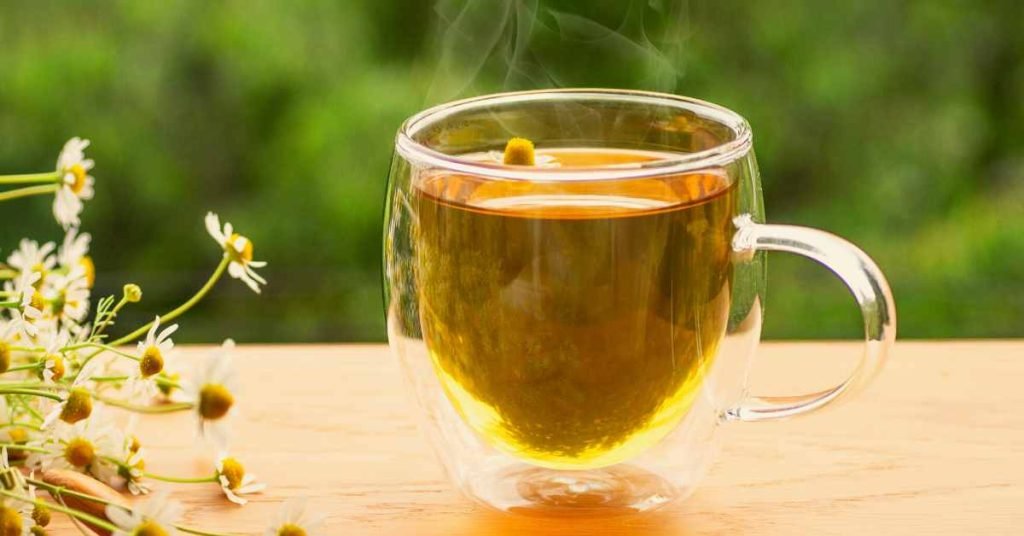Adenomyosis is a condition that affects many women around the world, causing pain and discomfort in their daily lives.
While medical treatments exist, there is growing interest in exploring natural remedies to alleviate symptoms and improve overall well-being.
One such remedy gaining popularity is tea. In this article, we will delve into the world of tea and its potential benefits for those with adenomyosis.
Understanding Adenomyosis

Before we explore the role of tea in managing adenomyosis, let’s briefly understand the condition itself.
It is an abnormal growth of the tissue that lines the uterus, expanding on the muscular walls of this organ. This can lead to heavy and painful periods, bloating, and discomfort.
While various treatment options are available, some women are seeking complementary and alternative therapies, and tea is emerging as a potential candidate.
Tea and its Therapeutic Properties
From green tea to herbal infusions, different types of tea offer unique therapeutic properties that can potentially provide relief for individuals dealing with adenomyosis.
Anti-Inflammatory Properties of Green Tea
Green tea is renowned for its high concentration of antioxidants, particularly catechins. These antioxidants may help reduce inflammation.
Chronic inflammation is a key factor in the development and progression of various reproductive health issues, and green tea’s ability to mitigate inflammation makes it a potentially valuable addition to the diet of individuals with adenomyosis.
Chamomile Tea for Relaxation

Adenomyosis often comes with intense pain and discomfort.
Chamomile tea, known for its calming and relaxing properties, may help alleviate stress and anxiety, contributing to a better overall sense of well-being.
By promoting relaxation, chamomile tea may indirectly assist in managing the pain associated with adenomyosis.
Ginger Tea for Pain Relief
Ginger has been used for centuries as a natural remedy for pain and inflammation. Ginger tea, derived from the root of the ginger plant, contains bioactive compounds with analgesic and anti-inflammatory effects.
Women with adenomyosis may find relief from menstrual cramps and pelvic pain by incorporating ginger tea into their daily routine.
Peppermint Tea for Digestive Comfort
Bloating and digestive discomfort are common symptoms of adenomyosis.
Peppermint tea, with its soothing and antispasmodic properties, may help alleviate these symptoms.
By relaxing the muscles of the gastrointestinal tract, peppermint tea can provide relief from bloating and gas, promoting better digestive health for those with adenomyosis.
Red Raspberry Leaf Tea and Uterine Health

Red raspberry leaf tea has traditionally been used to support uterine health. While research is limited, some women believe that red raspberry leaf tea may help tone the uterine muscles and regulate menstrual cycles.
This could potentially be beneficial for individuals with adenomyosis, although more scientific studies are needed to substantiate these claims.
Incorporating Tea into a Healthy Lifestyle
While tea may offer potential benefits for individuals with adenomyosis, it’s important to note that it is not a standalone cure or treatment. Rather, tea should be viewed as part of a holistic approach to managing the condition.
Here are some tips on incorporating tea into a healthy lifestyle for individuals with adenomyosis:
Consult with a Healthcare Professional
Before making any significant changes to your diet or lifestyle, it’s crucial to consult with a healthcare professional, especially if you have a medical condition like adenomyosis.
They can provide personalized advice based on your health status and help you determine the most appropriate ways to integrate tea into your routine.
Choose Organic and High-Quality Teas
Opt for organic and high-quality teas, such as Hummingbird Tearoom‘s to ensure that you are getting the maximum benefits without the potential contaminants found in lower-quality products.
Consider exploring teas from reputable sources, such as specialty tea shops or well-known brands that prioritize quality.
Experiment with Different Teas: The world of tea is vast and diverse.

Experiment with different types of tea to discover what works best for you. Green tea, chamomile, ginger, peppermint, and red raspberry leaf tea are just a few options. Keep in mind that individual responses to tea may vary, so finding the right fit may require some trial and error.
Mindful Consumption: Practicing mindfulness during tea consumption can enhance its therapeutic effects.
Create a calming ritual around tea time, focusing on the aroma, flavor, and warmth of the beverage. This mindful approach can contribute to overall stress reduction and relaxation.
Balanced Diet and Lifestyle: While tea can be a valuable addition to your daily routine, it should be complemented by a balanced diet and a healthy lifestyle.
Adequate hydration, regular exercise, and a diet rich in fruits, vegetables, and whole grains contribute to overall well-being and may positively impact the symptoms of adenomyosis.
Final Word
Tea, with its diverse range of flavors and therapeutic properties, holds promise as a complementary approach to managing adenomyosis.
From anti-inflammatory green tea to soothing chamomile and pain-relieving ginger, different types of tea offer unique benefits that may alleviate symptoms and improve the quality of life for individuals with adenomyosis.
However, it’s essential to approach tea consumption as part of a holistic lifestyle, combining it with a balanced diet, regular exercise, and consultation with healthcare professionals to ensure the best possible outcomes.
As research in this area continues to evolve, tea may emerge as a comforting and supportive ally in the journey towards managing adenomyosis and promoting women’s reproductive health.
MEDICAL DISCLAIMER
Itsnevernotteatime.com cannot and does not contain medical/health advice. The medical/health information is provided for general and educational purposes only and is not a substitute for professional advice.




